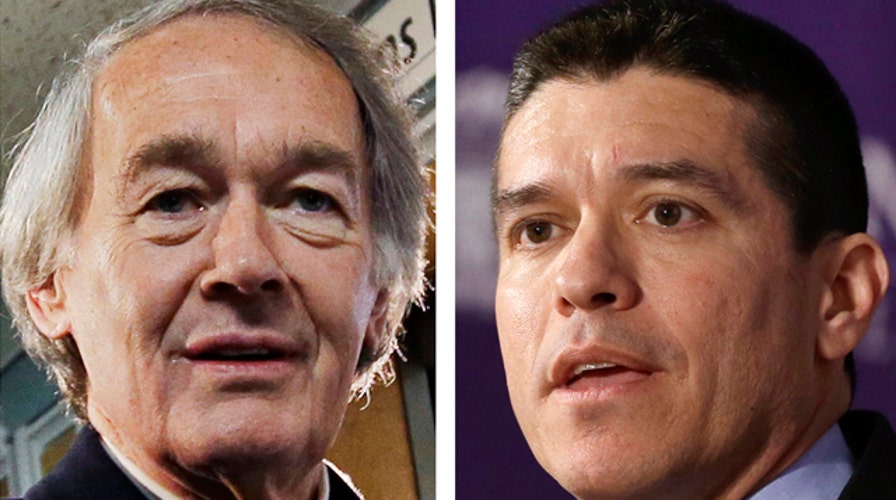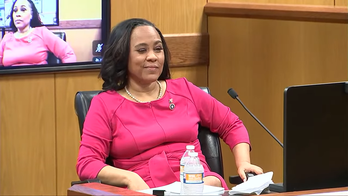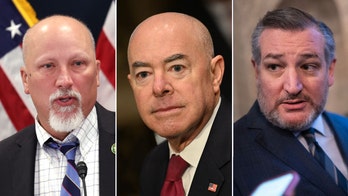Power Play 5/8/2013
Benghazi hearings begin and Thomas Perez headed to vote as Labor Secretary. Plus is there dissent among Democrats on the Benghazi probe?
“I would not be surprised [to see mudslinging] given [Democratic nominee Rep. Edward Markey’s] anemic poll numbers and his refusal to talk about what matters to voters.”
-- Lenny Alcivar, spokesman for Gabriel Gomez, Republican candidate for the June 25 special election to serve out the Senate term of now Secretary of State John Kerry, talking to the Boston Herald.
A word of caution to political operatives considering using Usama bin Laden in a television attack ad: Don’t.
And if you are launching that ad just after the largest city in your state was hit by a terrorist attack – the first large-scale strike in the U.S. since 9/11 – you may want to find Dick Cheney’s secret, undisclosed location and chill out there for a while.
And if the target of that ad is a former Navy SEAL, well, bring along your iPad because you may be in the bunker for a bit.
In a show of political ham handedness not seen in Massachusetts since Martha Coakley scoffed at standing outside in the cold to shake hands with voters, Rep. Ed Markey, the Democratic nominee for the Senate seat vacated by John Kerry, put up an attack ad against Republican Gabriel Gomez, indeed a former Navy SEAL, that showed voters a split-screen of Gomez and bin Laden.
The ad, launched just two weeks after the Boston Marathon bombing, attacks Gomez for his part in a group of special operations veterans that chastised President Obama for taking credit for the raid that killed bin Laden. Markey’s message is that Gomez is part of the right-wing conspiracy against Obama and therefore not a good fit for a state that Obama won by 23 points last year.
The ad is just part of a larger strategy by Markey to define Gomez as a Republican hack. Gomez just won the nomination last week, so Markey’s TV barrage is intended to do what Obama did to Republican Mitt Romney last year: define his opponent’s character early on and never let him off the floor.
But with only two months in the general election cycle in a heavily Democratic state, why would a 36-year House incumbent and dean of the commonwealth’s congressional delegation want to open a heavy-handed and risky attack against a little-known challenger?
[pullquote]
Because the race is going to be close, as reflected by the first two polls on the contest.
Rather than being an asset, Markey’s long service in Washington, longer than any House member in all of New England, is a problem. He is certainly well known, but it is not helpful to be well known as a Washington insider and a power broker. As Scott Brown showed in 2010, running against Washington can work for Republicans in Massachusetts special elections.
Markey’s second problem is with blue-collar voters. Markey bested his fellow Democratic congressman, Stephen Lynch, in a primary contest that largely broke along class lines. Markey’s gentry coalition defeated Lynch’s working-class crew. And, as Brown also proved, blue-collar independent voters can turn the tide in a race like this.
Markey is a more graceful and gracious politician than Coakley was, but doesn’t have the “board room to boiler room” skills that the late Sen. Ted Kennedy and other Bay State political bluebloods did. Gomez’s service record and immigrant parents set him up as an everyman candidate. Gomez may not drive a red truck, but even as a multi-millionaire he can offer himself as a self-made man.
The other big issue is the bombing itself. An electorate on high alert about Islamist radicalism and national security has reason to like the idea of sending a SEAL to the Senate.
But as Mark Sanford’s victory in South Carolina Tuesday proved, special elections often say more about the political composition of a district than the personal attributes of the candidates in the race.
Sanford was able to show voters that he was able to serve out his term as governor without further embarrassment following his confession of infidelity. Voters in the heavily-Republican district may have been queasy about returning Sanford to the House, but not so much so that they were willing to go against their beliefs.
But rather than make his own case to a skeptical audience, Markey opened on the attack. Not only did he show weakness, he highlighted his opponent’s greatest biographical strength. To explain what Markey says is wrong with Gomez’s criticism of Obama, Markey first had to explain why he was making it.
Gomez still has to be considered a long shot, but Markey’s stumble out of the gate on such an important subject guarantees that this will be no boat race. As national money floods into the state and voters get serious about national security, Gomez is going to be a contender.
Chris Stirewalt is digital politics editor for Fox News, and his POWER PLAY column appears Monday-Friday on FoxNews.com. Catch Chris Live online daily at 11:30amET at http:live.foxnews.com.





